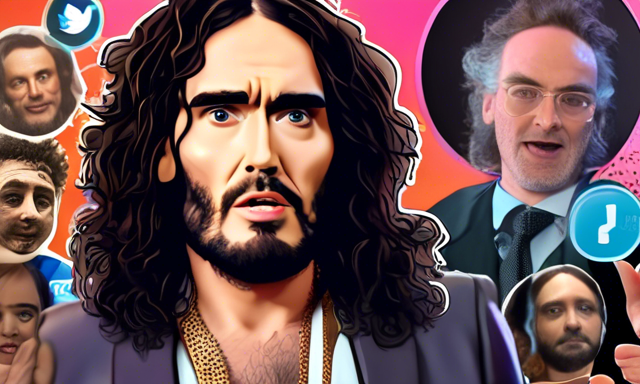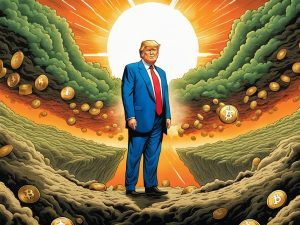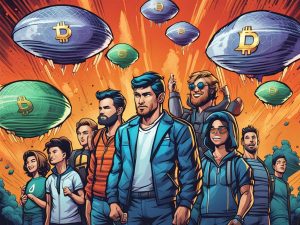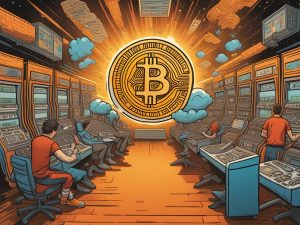The Importance of Decentralized Social Media
The recent controversy surrounding Russell Brand highlights the need for decentralized social media platforms. The UK government’s actions have sparked concerns about censorship and government control over social media. The government has directed its attention to social media companies, investigating whether Brand profits from his content despite serious allegations against him.
UK Government Asks to Cancel Russell Brand
The Culture, Media, and Sport Committee in the UK is looking into whether Brand benefits financially from his content amid allegations of rape, sexual assault, and emotional abuse. This has led major platforms like the BBC and Channel 4 to distance themselves from him, and YouTube has halted monetization of his channels. The concept of “cancel culture” comes into play here, raising questions about where the line should be drawn between platform integrity and censorship.
Brand has responded to the allegations on Rumble, a platform that is resisting governmental pressure. The British government has even sent a letter to Rumble, asking if Brand can profit from his content on the platform. This raises concerns about government interference in social media platforms.
Rumble Rejects the UK Parliament’s Demands
Rumble has firmly refused to comply with the UK government’s demands, emphasizing the importance of decentralized platforms. The company believes it is inappropriate and dangerous for a government to control who can speak or earn money on its platform. This resistance highlights the value of decentralized platforms that allow for free expression without undue influence.
Influential figures like Elon Musk have advocated for due process and resisting hasty censorship. They believe that accusations do not equate to guilt and that a comprehensive examination should precede any action. This could prompt a reevaluation of social media policies to achieve a more balanced approach.
The Impact and Fragility of Public Opinion
While some fight for Brand’s right to speak and earn, sponsors are retreating. YouTube has demonetized Brand, and other sponsors have withdrawn their support. However, some sponsors are waiting for concrete evidence before making a definitive decision. This highlights the fragility of public opinion and its influence on corporate decisions.
Brand’s situation mirrors past incidents like the Johnny Depp and Amber Heard case, where premature judgments based on media narratives can be perilous.
Why Decentralized Social Media Matters
Centralized social media platforms are vulnerable to external pressures and control from governments or public sentiment. Decentralized social media platforms offer a more democratic approach to content and monetization. If the “cancel Russell Brand” movement had taken place on decentralized platforms, actions like demonetization would require broader consensus.
A decentralized structure would protect users from cancel culture and promote genuine free speech, allowing voices like Brand’s to be heard without undue influence from corporations or governments.
Hot Take: The Urgent Need for Decentralized Social Media
The controversy surrounding Russell Brand highlights the necessity of reevaluating social media policies and transitioning to decentralized platforms. As societal norms evolve and digital advancements continue, it is crucial to establish a digital ecosystem that is fair, transparent, and resistant to external influences.





 By
By
 By
By
 By
By
 By
By
